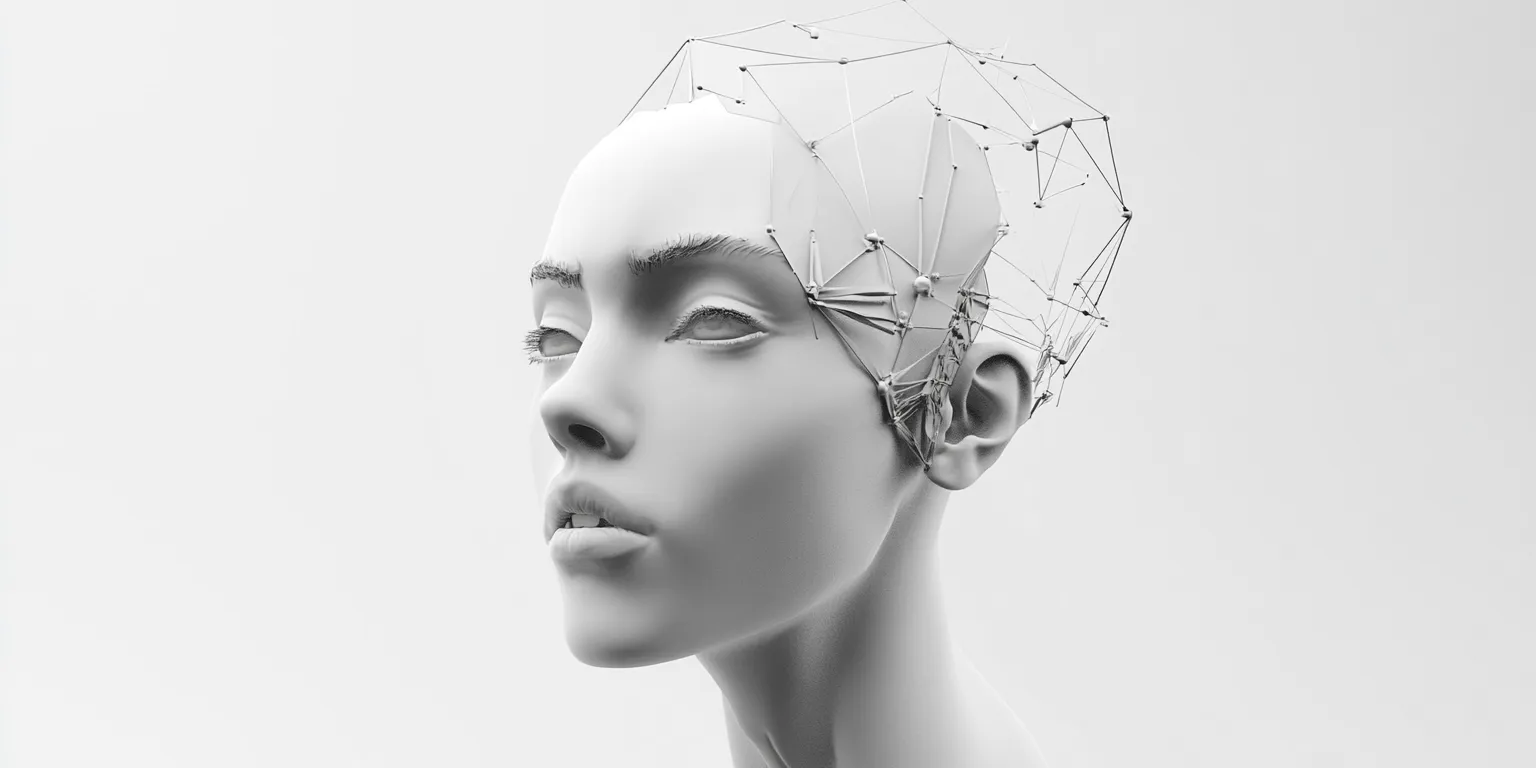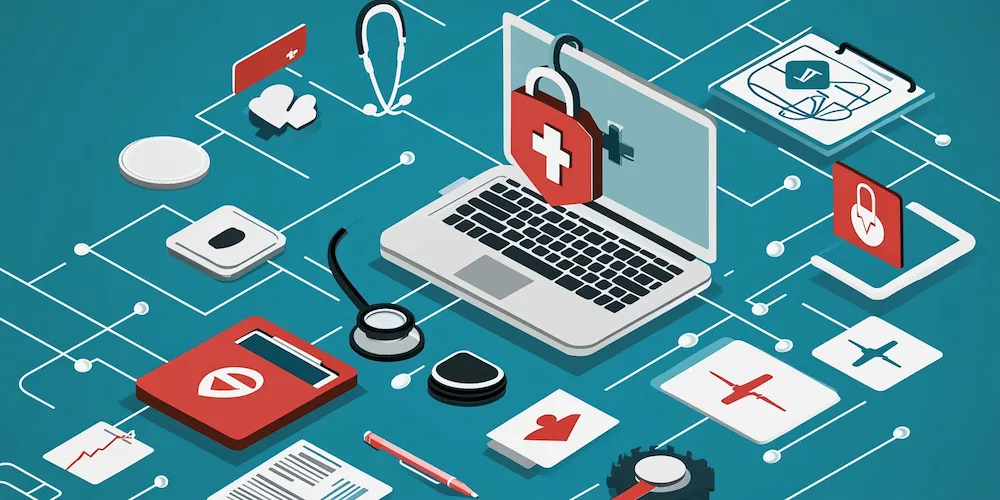AI in healthcare isn't just a buzzword anymore. It's changing how you experience medical care, from diagnostics to treatment. If you're wondering what this transformation means for you, you're not alone.
Imagine a world where AI helps doctors diagnose diseases faster and more accurately. That's not science fiction; it's happening now.
Let's explore how AI is transforming healthcare and what it means for the future. It's time to dive into the world of healthcare AI transformation.
What is Healthcare AI Transformation?
Healthcare AI transformation refers to integrating artificial intelligence into healthcare processes to improve efficiency, accuracy, and patient outcomes. You see AI in action when it analyzes medical images, predicts patient outcomes, or assists in personalized treatment plans.
Currently, AI applications in healthcare include diagnostic tools, virtual health assistants, and predictive analytics. As technology advances, the potential for AI to revolutionize healthcare continues to grow, promising more personalized and efficient care for you.
Key Areas of AI Transformation in Healthcare
Think about the last time you were at the doctor's office. Now, imagine if AI were there, working behind the scenes to make your visit faster and more accurate. Intrigued? Let's dive into how AI is reshaping your healthcare experience.
AI-Powered Diagnostics
AI-powered diagnostics revolutionize how you receive medical care by enhancing the speed and accuracy of diagnoses. In radiology and medical imaging, AI algorithms analyze scans to detect anomalies that might escape human eyes. This technology not only speeds up the diagnostic process but also improves accuracy, giving you quicker access to treatment.
In pathology and lab testing, AI assists in analyzing tissue samples and lab results, reducing the time it takes to identify diseases. Early disease detection and risk assessment benefit from AI's predictive capabilities, allowing healthcare providers to identify potential health issues before they become serious, offering you a proactive approach to your health.
AI-Assisted Clinical Decision Support
Ever wonder how doctors decide on the best treatment plan for you? AI consultation is lending a hand here, too.
Treatment planning and personalized medicine leverage AI to analyze your medical history, genetics, and lifestyle, tailoring treatments to your specific needs. Patient monitoring and predictive analytics use AI to track your health metrics in real time, predicting potential health events and enabling timely interventions.
Virtual nursing assistants and chatbots offer you 24/7 support, answering questions, scheduling appointments, and providing reminders, making healthcare more accessible and convenient.
AI in Hospital Operations
Have you ever thought about what goes on behind the scenes at a hospital to make sure you get the care you need when you need it? AI is stepping in to make these processes smoother and more efficient.
AI-driven digital transformation in healthcare optimizes hospital operations, ensuring you receive efficient and timely care.
- Workflow optimization and automation streamline administrative tasks, allowing healthcare professionals to focus more on patient care.
- AI manages inventory and supply chain, ensuring that necessary medical supplies are available when needed, reducing delays in treatment.
- Revenue cycle management and fraud detection benefit from AI's ability to analyze financial data, identify discrepancies, and prevent fraudulent activities, ultimately reducing costs and improving service quality for you.
AI-Driven Drug Discovery and Development
Imagine getting access to new treatments faster than ever before. AI is making this possible by speeding up the drug development process bringing potential cures to your doorstep more quickly.
- In target identification and validation, AI analyzes biological data to identify potential drug targets, speeding up the initial stages of drug development.
- Compound screening and lead optimization benefit from AI's ability to simulate and predict how compounds will interact with biological targets, reducing the need for extensive physical testing.
- AI also enhances clinical trial design and patient recruitment by identifying suitable candidates and optimizing trial protocols, ensuring that new drugs are tested efficiently and effectively.
Challenges and Considerations
While the promise of AI in healthcare is exciting, let's not forget the hurdles that come with it. What keeps you up at night when you think about AI?
Data Privacy and Security Concerns
When you think about healthcare AI transformation, data privacy, and security often come to mind. Protecting sensitive patient information remains a top priority. AI systems handle vast amounts of data, which can make them targets for cyberattacks. Ensuring robust security measures and encryption protocols helps safeguard this information, keeping your data safe from unauthorized access.
Regulatory Compliance and Ethical Considerations
AI in healthcare must comply with strict regulations to ensure patient safety and data integrity. You might wonder how these technologies align with ethical standards. Ensuring AI systems make unbiased decisions and respect patient rights is paramount. Regulatory bodies continuously update guidelines to address these concerns, ensuring AI applications remain within ethical boundaries.
Interoperability and Integration with Existing Systems
You may encounter issues with interoperability, as AI solutions need to work seamlessly with current technologies. Ensuring compatibility between AI applications and existing electronic health records (EHRs) or other systems requires careful planning and execution. This integration ensures that AI enhances, rather than disrupts, your healthcare experience.
Workforce Readiness and Change Management
As AI becomes more prevalent in healthcare, workforce readiness becomes crucial. Preparing healthcare professionals to work alongside AI involves training and education. Change management strategies help ease the transition, ensuring that both you and healthcare providers adapt smoothly to new workflows and technologies.
4 Strategies for Successful AI Adoption in Healthcare
So, how do you make AI work for you and your organization? It's all about strategy and preparation.
1. Establish Clear Goals and Priorities
To successfully integrate AI into healthcare, you need to properly follow the foundational steps for AI. Start by identifying the specific problems AI can solve within your organization. Whether it's improving diagnostic accuracy or streamlining administrative tasks, having a clear focus helps guide your AI initiatives. Prioritize projects based on potential impact and feasibility. This ensures that resources are allocated effectively and that AI efforts align with your organization's broader objectives.
2. Foster Collaboration and Partnerships
Think of AI adoption as a team sport. Collaboration is key, so how do you get everyone on board?
Engaging healthcare providers and stakeholders is vital. Their insights and feedback can help tailor AI solutions to real-world needs. Collaborate with technology vendors and startups to access cutting-edge AI tools and expertise. These partnerships can accelerate development and implementation, providing you with innovative solutions faster. Participating in industry consortia and initiatives allows you to stay informed about the latest trends and best practices. It also offers opportunities to share experiences and learn from others in the field.
3. Invest in Data Infrastructure and Governance
Ensure that your organization has the necessary systems in place to collect, store, and process data efficiently. This includes investing in scalable storage solutions and robust data management platforms. Data governance is equally important. Establish clear policies and procedures for data handling to maintain accuracy and integrity. This includes setting standards for data quality and implementing measures to protect patient privacy.
4. Develop AI Talent and Skills
Invest in training programs to upskill your existing staff. This includes offering courses on AI fundamentals, data analytics, and machine learning. Encourage continuous learning to keep pace with technological advancements. Hiring new talent with specialized AI expertise can also strengthen your team. Look for professionals with experience in healthcare AI applications, as they can bring valuable insights and skills.
Real-World Examples and Case Studies
Curious about how AI is already making waves in healthcare? Let's take a look at some real-world success stories.
AI-Powered Diagnostic Tools
Imagine walking into a clinic and receiving a diagnosis within minutes. AI-powered diagnostic tools make this possible. These tools analyze medical images like X-rays and MRIs with remarkable speed and accuracy. For instance, AI algorithms can detect early signs of diseases such as cancer, often before symptoms appear. This rapid analysis not only speeds up the diagnostic process but also improves accuracy, providing you with timely and precise information about your health.
Predictive Analytics for Population Health Management
By analyzing vast amounts of data, AI identifies patterns and trends that indicate potential health risks across communities. This proactive approach allows healthcare systems to allocate resources more effectively, focusing on prevention rather than treatment. For example, AI can predict flu outbreaks by analyzing social media trends and health records, enabling you to receive targeted interventions before an epidemic spreads.
AI-Assisted Surgery and Robotic Systems
In the operating room, AI-assisted surgery and robotic systems enhance precision and safety. These systems provide surgeons with real-time data and insights, reducing the margin for error. Robotic arms, guided by AI, perform intricate procedures with steady precision, minimizing the impact on surrounding tissues. This technology leads to shorter recovery times and better outcomes for you. Surgeons benefit from AI's ability to simulate surgical scenarios, allowing them to plan and practice complex procedures before entering the operating room.
Future Trends and Innovations
Looking ahead, what exciting AI trends and innovations are on the horizon for healthcare?
Explainable AI and Trust in Healthcare
Explainable AI becomes a game-changer in healthcare by making AI decisions transparent and understandable. You gain confidence in AI systems when you know how they reach conclusions. This transparency helps healthcare providers trust AI recommendations, leading to better patient care. Explainable AI ensures that you and your healthcare team can question and validate AI-driven decisions, fostering a collaborative environment where human expertise and AI insights work hand in hand.
Federated Learning and Privacy-Preserving AI
Federated learning addresses privacy concerns by allowing AI models to learn from data without it leaving your device. This approach keeps your sensitive information secure while still benefiting from AI advancements. You can contribute to AI training without compromising your privacy. Federated learning enables healthcare systems to collaborate and improve AI models using data from multiple sources, enhancing their accuracy and effectiveness without risking data breaches.
AI-Powered Precision Medicine and Genomics
AI-powered precision medicine tailors treatments to your unique genetic makeup, lifestyle, and medical history. This personalized approach ensures that you receive the most effective therapies with minimal side effects. AI analyzes vast genomic datasets to identify patterns and correlations, helping healthcare providers develop targeted treatments. You benefit from therapies designed specifically for your condition, improving outcomes and reducing trial-and-error in treatment plans.
AI in Mental Health and Behavioral Interventions
Virtual therapists and chatbots provide you with immediate assistance, helping you manage stress, anxiety, and other mental health challenges. AI analyzes your behavioral patterns to offer tailored coping strategies, ensuring you receive support that fits your needs. This technology also aids healthcare providers in monitoring their mental health, allowing for timely interventions and improved care.
Is AI the Future of Healthcare?
AI holds the potential to revolutionize healthcare by transforming diagnostics, treatment, and patient management. You might wonder how AI will impact the healthcare landscape in the long run. AI can streamline processes, enhance accuracy, and improve patient outcomes.
However, it's important to weigh the benefits against the risks, such as data privacy concerns and the potential for over-reliance on technology. A human-centered approach ensures that AI complements healthcare professionals, enhancing their capabilities without replacing the human touch that remains vital in patient care.
Unlock the power of AI with Tribe AI. Whether you're looking to develop custom AI products or optimize existing models, we have the expertise to drive your business forward. Visit Tribe AI to explore how we can help you leverage AI effectively and achieve your strategic goals.













